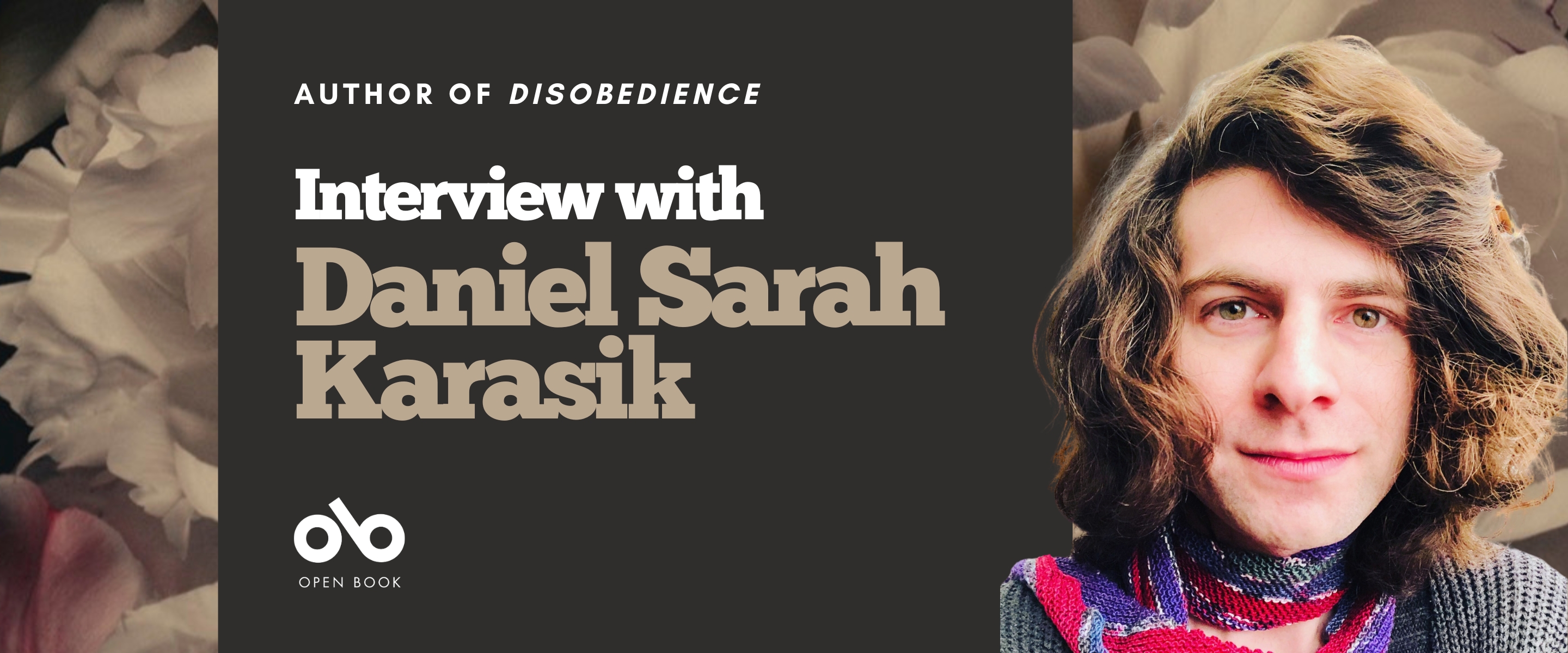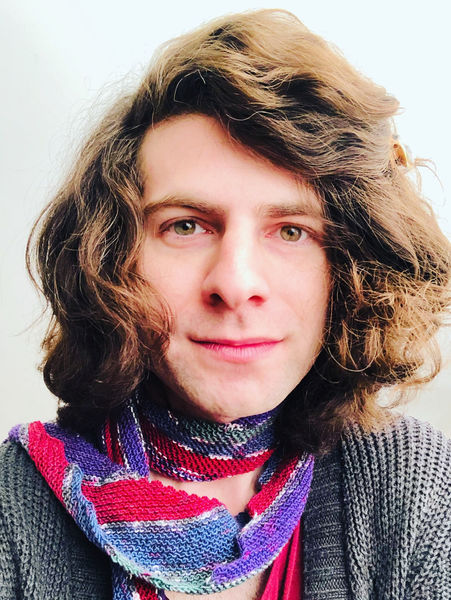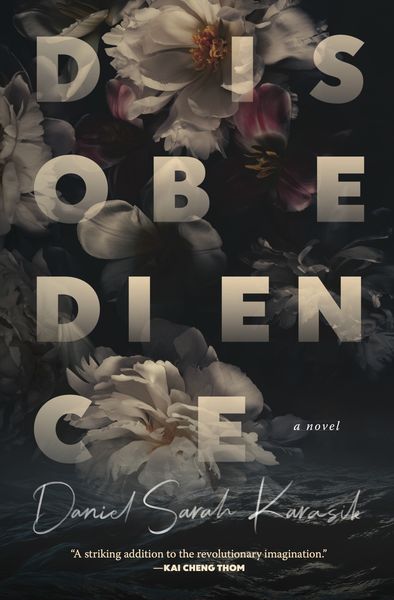Daniel Sarah Karasik Discusses Their Exciting New Work of Queer and Trans Speculative Fiction
Acclaimed and prolific, Daniel Sarah Karasik has already established themselves as an author to watch with interest. They have garnered praise from some of the most exciting writers on the scene, and that will surely continue with the release of their new novel.
In Disobedience (Book*hug Press), Karasik takes us on a fictional journey to a massive prison camp, developed after centuries and war and environmental catastrophe. We follow Shael, a transfeminine person at great risk through their own identity and their relationship with a known activist and insurrectionist. Instead of suffering further repression and violence, Shael decided to escape to Riverwish, a fledgling settlement created as a safe-haven to counter life in the camp.
It's a complex work of queer and trans speculative fiction that explores society, identity, and the power dynamics set by violent institutions.
Venture into the world of Disobedience with this fascinating Long Story Novelist Interview with the author:
Open Book:
Do you remember how you first started this novel or the very first bit of writing you did for it?
Daniel Sarah Karasik:
I knew I wanted to write something like Disobedience for quite a while before I actually made a first attempt. Around 2017, 2018, I was getting excited about speculative fiction as a genre that could help illuminate the ambivalences and tensions within abolitionist politics (that is, within those politics that work towards the overcoming of the state’s repressive institutions such as prisons and police). And that was really what sparked the novel: a set of political questions, a hunger for greater clarity around how we might fight for a more just world while mitigating the risk that, in the process, we may reproduce the horrors of the world that’s shaped us. How we might keep those projects of struggle from capsizing on their own contradictions. Which is also a question of the messiness of individual human desires, and how to organize them so they support and don’t undermine collective movement towards liberation.
OB:
If you had to describe your book in one sentence, what would you say?
DSK:
Queer and trans prison-abolitionist speculative fiction, in which escapees from a prison camp attempt to build an alternative society that works towards more liberatory forms of collective life, while struggling towards overthrowing the violent order they’ve escaped (and maybe also haven’t fully escaped, because it's so internalized).
Your CanLit News
Subscribe to Open Book’s newsletter to get local book events, literary content, writing tips, and more in your inbox
OB:
Did you do any specific research for this novel? Tell us a bit about that process.
DSK:
In early drafts of the novel, I made a world-building choice that required a bunch of research: I decided that the novel’s world would be full of radioactive contamination, forcing human life to be structured significantly around protective measures. But ultimately the research suggested that wasn’t a super tenable world-building choice and I dropped it. I spent a fair bit of time deliberating over how I was extrapolating the novel’s far-future world from our present one: are those links clear enough, are they too on-the-nose, how to make that all feel plausible enough? But the questions that animate the novel are not so much those technical or logistical ones—the book isn’t “hard” science fiction—but rather the emotional and political problems of social movements, and I feel like I’ve been researching the latter in a pretty focused way for many years now, both in my reading and through the political organizing work with which I’ve been involved.
OB:
Who did you dedicate your novel to, and why?
DSK:
I dedicated it “to my comrades, actual or potential,” though that line is in the novel’s acknowledgements rather than on a front-of-book dedication page. It’s more or less the same dedication that’s in my poetry collection Plenitude, which came out two years ago. These are books that are consciously conceived as offerings to people who are, today or potentially, on the same side of our time’s defining struggles: people whose conscious politics or half-formed intuitions (or both) align them with socialist, communist, anti-capitalist, anti-imperialist, anti-oppressive visions of how the world should be. In principle, anyone can be or become a comrade even if they weren’t one yesterday, so in that sense these books are potentially for anybody, though they can’t and won’t be for everybody. Most of all, I hope Disobedience is helpful to people who are grappling with the emotional and political problems at the heart of the book.
OB:
What if, anything, did you learn from writing this novel?
DSK:
I think I learned, or reaffirmed for myself, that I really don’t know the answers to the organizational questions the novel explores – questions about how we can prevent social movements from fracturing in ways that end up serving our enemies – and that it’s crucial to work towards adequate answers to those questions, not just write them off as undecidable. I feel like I also learned, or proved to myself, that it’s possible to write fiction structured around such questions, that we don’t have to feel inexorably drawn back to a depoliticized idea of “the literary” that says fiction is all about the exquisite representation of life’s surfaces and mustn’t advance a critical political project that engages seriously with ideas. The novel flowed from that hypothesis, which was supported by the evidence of existing emancipatory political fiction, and I think I feel more sure of that hypothesis’s validity than I did when I began work on the book!
_________________________________________
Daniel Sarah Karasik (they/them) is the author of many books, including two poetry collections, Plenitude and Hungry, and the short story collection Faithful and Other Stories. Their work has been recognized with the Toronto Arts Foundation's Emerging Artist Award, the CBC Short Story Prize, and the Canadian Jewish Playwriting Award. They organize with the network Artists for Climate & Migrant Justice and Indigenous Sovereignty (ACMJIS), among other groups, and are the founding managing editor of Midnight Sun, a magazine of socialist strategy, analysis, and culture. They live in Toronto.







